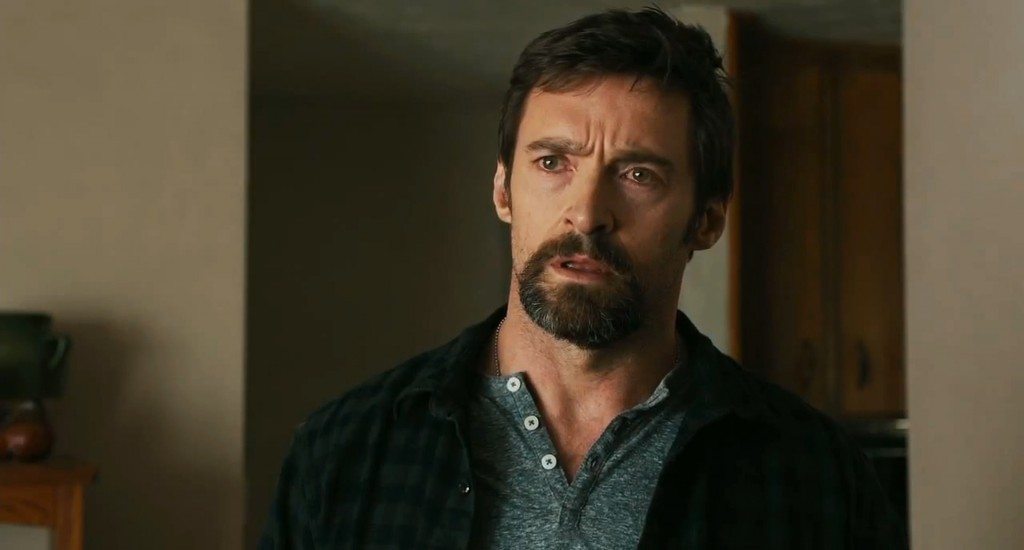Directed by Denis Villeneuve, ‘Prisoners’ is a suspense mystery film that revolves around the abduction of two girls, Anna and Joy. When the two girls disappear on Thanksgiving Day, Detective Loki (Jake Gyllenhaal) begins investigating the case. However, Anna’s father, Keller Dover (Hugh Jackman), becomes desperate and sets out on a dark path that leads him to the truth but destroys his life.
The 2013 film has a dull and eerie vibe synonymous with a true-crime documentary. The portrayal of the kidnapping case feels authentic due to the cast performances, tense tone, and the overall backdrop. The subtle but significant insight into the characters’ psyche makes the story immersive, and every scene carries a layer of realism, making us wonder if a true story inspired the movie.
Prisoners: Inspired by Edgar Allan Poe’s The Tell-Tale Heart
The Denis Villeneuve directorial is driven by a fictional script written by Aaron Guzikowski. Inspired by Edgar Allan Poe’s short story, ‘The Tell-Tale Heart,’ Aaron wrote a short story and later developed it into a feature-length screenplay. In an interview with Film School Rejects, he gave a gist of his short story. The writer said, “It was a story about a father whose kid was struck by a hit and run driver and then puts this guy in a well in his backyard.” He also said, “The short story was a small inkling of what became the script.”

In another interview with LA Times, Aaron also expressed how the story is not based on real-life events. Aaron said, “I wasn’t inspired by anything in the news, and then as I wrote it, I’d hear about these cases, and it seemed oddly reminiscent of what I was doing.” Aaron added, “The more you try to take something from the news and put it in your film, the more it can seem like a fantasy.”
The movie has an innate sense of sadness that resonates with the audience. The character arcs and the narrative feel intimate and stir profound emotions in the audience’s mind. Director Denis Villeneuve plays a significant role in creating the gloomy and depressing vibe reflecting the characters’ moods. While talking about the cinematic treatment, Denis told IndieWire, “It was very important to Roger to create a kind of claustrophobic environment, to feel the pressure on the characters and to feel the stress of winter and nature.”
Another important aspect of the movie is the spiritual overtones. We hear bible verses, listen to Keller talk about God, and pray in various scenes. Keller’s godliness adds another layer to his being, and Denis plays a huge role in emphasizing this side of the man. In an interview with Coming Soon, the director said, “I thought it would be pretty moving and interesting to see and to hear Keller’s prayers and to be in contact with his spirituality because by doing so, it will allow us to have a little window into Keller’s intimacy, his relationship to the world.”
Denis added, “I didn’t want the character to be just black or white, I wanted him to be a whole human being with his contradictions, his fears, his struggling morale.” He elaborated and explained how praying is an intimate experience that depicts one’s relationship with themselves and the world. In the movie, we see Keller pray while torturing Alex because he believes his actions will be forgiven. Keller understands he is wrong, but he is also an individualist who needs his daughter back. The prayers showcase the dichotomy in his personality and make the audience empathize with him.
Taking the aforementioned things into account, we reiterate that ‘Prisoners‘ is ultimately a film with several layers, themes, and subtle symbolisms which make the audience resonate with the characters and the story. Despite being a work of fiction, the movie makes us feel real emotions and ponder the people and society’s nature in the real world.
Read More: Prisoners Ending, Explained


You must be logged in to post a comment.